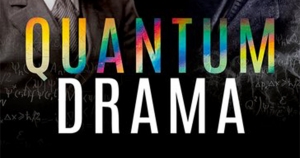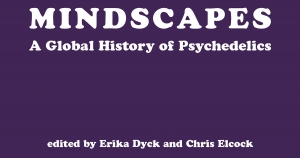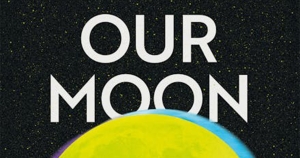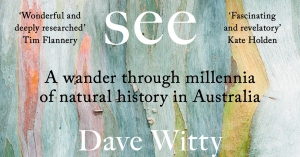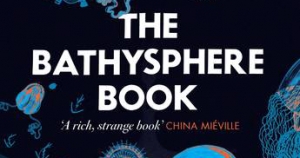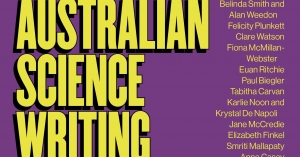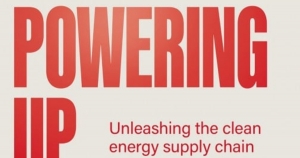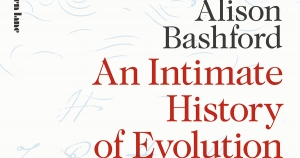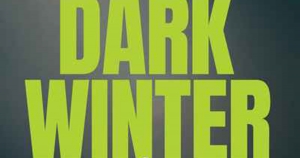Science
Harrison Croft reviews ‘Climate Change and International History: Negotiating science, global change, and environmental justice’ by Ruth A. Morgan
In 2020, with Katie Holmes and Andrea Gaynor, Ruth A. Morgan co-authored ‘Doing Environmental History in Urgent Times’, an article which was published in a dedicated ‘In urgent times’ edition of History Australia. With more than 8,800 views since its publication, which coincided with the first Covid lockdowns, the paper has gone on to become that journal’s most read article in its twenty-year lifetime. In it, the co-authors staunchly called for ‘barbed and incendiary histories that hold wrongdoers to account and keep watch over the present’. History writing is an inherently political act, and they stressed – in italics, no less – ‘there is no justice without history’. Four years on, there remains an ever-accelerating and palpable urgency to the work of history writing. With coruscating prose and assiduous scholarship, Climate Change and International History adds its voice to this chorus.
... (read more)Robyn Arianrhod reviews ‘Quantum Drama: From the Bohr-Einstein debate to the riddle of entanglement’ by Jim Baggott and John L. Heilbron
Let’s face it, quantum mechanics mystifies most of us. But as Quantum Drama shows, it baffled its creators, too – so much so that some of them turned to suicide, drink, or psychiatry (Carl Jung was a favourite). Who wouldn’t go crazy, trying to get their head around such bizarre happenings as subatomic particles sometimes being wave-like, and a theory that cannot tell you the particle’s definite state – its position and velocity, say – before you measure it? In ordinary ‘classical’ physics, by contrast, you can predict in advance every point on the trajectory of an ordinary object, such as a ball or a spacecraft, launched from any given place with any particular velocity. But quantum theory does not play by these long-established rules: until you observe the particle, all the theory can tell you are the chances it will show up at various places. As Einstein asked, ‘Do you really believe the Moon is only there when you look at it?’
... (read more)Ben Brooker reviews ‘Expanding Mindscapes: A global history of psychedelics’ edited by Erika Dyck and Chris Elcock
An anthology dedicated to the transnational history of psychedelic drugs and culture seems a timely enterprise. We are twenty or so years into what has become known as the ‘psychedelic renaissance’, the global revival of interest in compounds such as LSD, mescaline, and psilocybin centring on their use alongside psychotherapy as treatments for a growing number of mental health disorders.
... (read more)Robyn Arianrhod reviews ‘Our Moon: A human history’ by Rebecca Boyle
During a recent lunar eclipse, I marvelled as Earth’s shadow nibbled away the Moon’s light. This creeping shadow testified to the awesome movement of the celestial spheres, Earth inching along its trajectory around the Sun while the Moon fell around Earth until, on this special night, all three bodies were closely aligned in the same plane: Sun, Earth, Moon. A related alignment occurs each month, when the Sun’s light is reflected from the full, uninterrupted Moon. We can see it because the Moon orbits Earth in a slightly different plane from that of Earth’s motion around the Sun. But on this night, the Moon was passing through a point where these two planes intersected, so that Earth directly blocked the light from Sun to Moon.
... (read more)Ashley Hay reviews ‘What the Trees See: A wander through millennia of natural history in Australia’ by Dave Witty
The photograph arrives while I am reading Dave Witty’s What the Trees See. A tree’s branch close-up, outer brown-red bark peeled back to smooth and brilliant green. A friend, spotting it on Quandamooka Country in Minjerribah, North Stradbroke Island, has been understandably stopped in her tracks. Framed intimately like this, its shape and textures suggest warm musculature: lean in, you will be held. This beautiful creature.
... (read more)Killian Quigley reviews 'The Bathysphere Book: Effects of the luminous ocean depths' by Brad Fox
In 2019, Smithsonian magazine published a profile of an American inventor, entrepreneur, and undersea explorer named Stockton Rush. Rush and his company, OceanGate, had recently celebrated the successful descent of their experimental manned submersible Titan to the extraordinary depth of 4,000 metres. Titan’s design was innovative in two important ways: its body was composed centrally of carbon fibre, which made it light and comparatively inexpensive to operate, and it was a cylinder. A spherical sub might have had ‘the best geometry for pressure’, observed Rush, ‘but not for occupation’ – and this represented an unpalatable check on OceanGate’s plans to deliver groups of high-paying tourists to the wreck of the Titanic. ‘I had come across this business anomaly I couldn’t explain,’ Rush reflected: ‘If three-quarters of the planet is water, how come you can’t access it?’
... (read more)Robyn Arianrhod ‘The Best Australian Science Writing 2023’ edited by Donna Lu
The Best Australian Science Writing (BASW) anthology is here again, and readers are in for a treat: a wide-ranging selection of easy-to-read articles describing some of the amazing science that is happening right now.
Of course, it is an impossible task, choosing the ‘best’ writing, and in her introduction editor Donna Lu acknowledges her subjectivity. It is the same for a reviewer, and since I don’t have room to name everyone, I won’t single out my own favourites.
... (read more)Julian V. McCarthy reviews 'Powering Up: Unleashing the clean energy supply chain' by Alan Finkel
Our planet is in trouble. Climate change is real. Widespread, tumultuous change has occurred in our atmosphere, oceans, biosphere, and cryosphere, driving weather and climate extremes, anomalies, and record heat across the globe. Already, the damage has been substantial. ‘[Climate change] has led to widespread adverse impacts and related losses and damages to nature and people’ (Sixth Assessment Report, UN Intergovernmental Panel on Climate Change, or IPCC). And the cause is well known. Decades of research and legions of scientists attest unequivocally that human-caused greenhouse gas emissions are causing global warming, threatening to precipitate unprecedented levels of global heating across the planet.
... (read more)Gary Werskey reviews 'An Intimate History of Evolution: The story of the Huxley family' by Alison Bashford
Fifty years ago (when I was a very young scholar), I was asked to write an essay review of some recently published books about the Huxleys. None of them in my view, including Julian Huxley’s own volume of Memories (1970), did justice to their subjects’ scientific achievements and social concerns. Half a century later we now have Alison Bashford’s An Intimate History of Evolution: The story of the Huxley family. It has most definitely been worth the wait. Indeed this work is the crowning achievement of her distinguished career.
... (read more)Ben Brooker reviews 'Dark Winter: An insider’s guide to pandemics and biosecurity' by Raina MacIntyre
In the months leading up to the 2022 federal election, as the two major parties duked it out over the cost of living, integrity, and the climate crisis, one issue barely rated a mention amid the barrage of leaders’ debates, press conferences, and doorstops: the Covid-19 pandemic. Having raged in Australia for more than two years, resulting in once-in-a-generation disruption to daily life, including the world’s longest lockdown, the virus had become all but untouchable on both sides of the political divide. Labor and the Coalition obviously reasoned that the best position on Covid electorally was not to have a position at all. Neither party articulated a strategy to manage the virus, or its ever-expanding roll-call of variants, into the future. For the most part, journalists – more interested it seemed in the then Opposition leader’s ‘gaffes’ – could not bring themselves to mention the C-word either.
... (read more)
